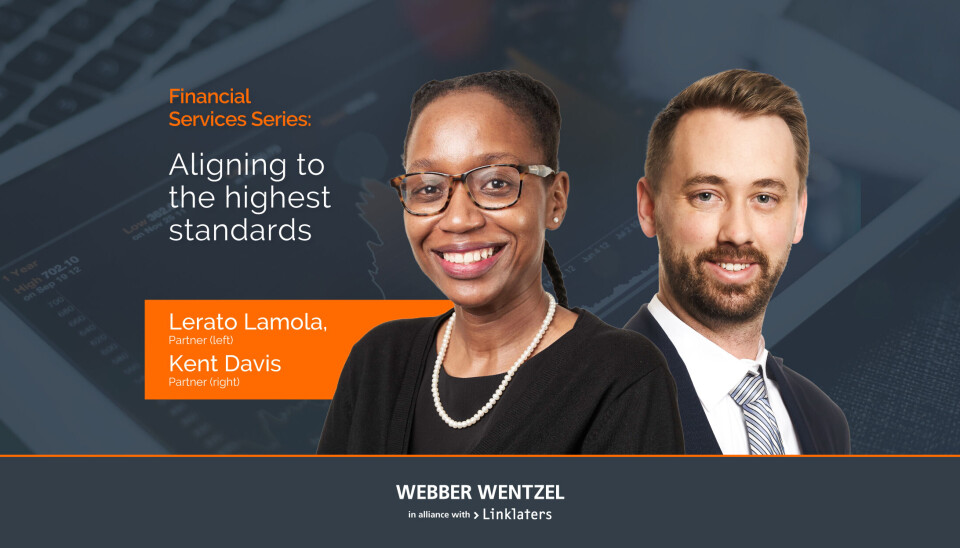Copyright : Re-publication of this article is authorised only in the following circumstances; the writer and Africa Legal are both recognised as the author and the website address www.africa-legal.com and original article link are back linked. Re-publication without both must be preauthorised by contacting editor@africa-legal.com
Aligning to the highest standards

As it works to get off the FATF “grey list”, South Africa has been addressing legislative deficiencies identified in 2023. Financial services experts Kent Davis and Lerato Lamola took a look at the evolution of group governance and anti-money laundering measures.
Multinational financial institutions operating in Africa can face a complex web of regulatory requirements, so from a group governance perspective it is always best to align yourself with the highest standards, advise Kent Davis and Lerato Lamola of Webber Wentzel.
“There’s an incentive and interest in South African groups doing business across the continent,” noted Davis, a partner in the Johannesburg office, who specialises in all aspects of financial regulatory law. “Where the nuance comes in is to have a broad framework that sets a high standard while catering for a group’s approach to governance and risk, then enabling African subsidiaries to align themselves, taking into account variations in local laws.”
Navigating myriad regulatory layers is a significant challenge that shouldn’t be understated, emphasise Davis and Lamola. For instance, South Africa-headquartered banks or insurers can face general South African governance rules along with specific financial-sector requirements which impose obligations on controlling company boards to ensure governance frameworks overseeing the entirety of a group. Then they have to take into account variations in local laws in other African jurisdictions, overlaid with ESG requirements, climate disclosures, anti-money laundering (AML) requirements, and other standards imposed by clients sitting in the EU or other overseas jurisdictions.
Historically, AML requirements were seen as a parallel or isolated framework, but really they should be considered as part and parcel of the entirety of a group’s governance framework, and are a good example of how group governance should be managed, highlighted Davis and Lamola.
“With South Africa being greylisted in 2023, there's more emphasis now from our regulators on understanding how groups manage their anti-money laundering risk within the individual accountable institutions that sit under a holding company,” explained Lamola, a dual-qualified partner who specialises in financial regulatory law. “Our Financial Intelligence Centre Act (FICA) has this concept of a group-wide risk management compliance programme, so you’ll have a holding company and several subsidiaries, and each can be an accountable institution.”
Davis and Lamola note that holding companies in South Africa need to take into consideration that they’re managing AML requirements as they sit in South Africa and in other African jurisdictions where they have subsidiaries. According to FICA, they need to understand how AML is governed in those other jurisdictions, and assess whether any deviations need to be accounted for.
Again, the higher standard is what should be applied from a group governance perspective.
While there can be misalignment between various regimes, in practice regulators are quite good at speaking to each other and recognising that group-wide regulation sits in South Africa, said Davis, whose team recently worked on a deal involving 29 African jurisdictions.
“Where our expertise lies is that we have sector-specific knowledge, we understand the industries we work in incredibly well, and we are able to form core teams around knowing your business,” explained Davis, noting the wide range of internal experts Webber Wentzel can call on who cover the myriad regulatory layers and varied requirements. “I think that’s really where we can assist clients – to put together teams that understand your business and that have the correct expertise to really navigate the challenges clients are faced with.”
